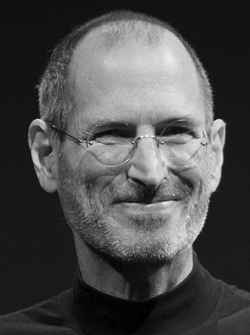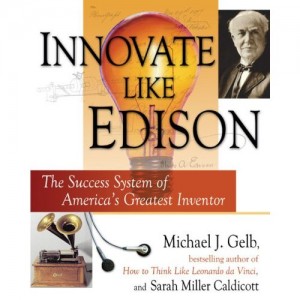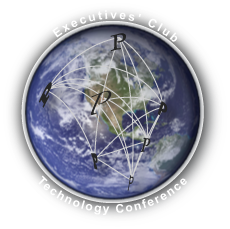 Recent coverage has increased my doubts in Facebook’s management team, whose failure to capitalize on its unique assets looks increasingly likely. In the Facebook As Investment trilogy, I examined Facebook through three different lenses and voiced my doubts about its management team’s ability to realize the company’s fantastic potential. Many of CSRA’s clients have invested significantly in Facebook presences, and I am not predicting the site’s demise, but I question its long-term viability. Brands face two types of immediate risk: erratic technology/functionality changes to “add value” with features—and lack of innovation due to management team paralysis. Facebook Page owners and individual users may be inconvenienced, but nothing drastic will happen right away. As a related issue, Facebook’s experience may presage a Web 2.0 startup bubble bursting. After a summary of danger signs, I’ll recommend how you can minimize your inconvenience due to Facebook’s gyrations. Recent coverage has increased my doubts in Facebook’s management team, whose failure to capitalize on its unique assets looks increasingly likely. In the Facebook As Investment trilogy, I examined Facebook through three different lenses and voiced my doubts about its management team’s ability to realize the company’s fantastic potential. Many of CSRA’s clients have invested significantly in Facebook presences, and I am not predicting the site’s demise, but I question its long-term viability. Brands face two types of immediate risk: erratic technology/functionality changes to “add value” with features—and lack of innovation due to management team paralysis. Facebook Page owners and individual users may be inconvenienced, but nothing drastic will happen right away. As a related issue, Facebook’s experience may presage a Web 2.0 startup bubble bursting. After a summary of danger signs, I’ll recommend how you can minimize your inconvenience due to Facebook’s gyrations.
[…]
 The power of specialization in social networks explains how most executives and knowledge workers are not yet in synch with the emerging Knowledge Economy and its disruption of career assumptions. One of the most powerful career beliefs of the 20th century is especially out of place in the 21st century: generalists are more flexible and employable. Read on for a brief explanation of key Knowledge Economy career trends and specific action steps you can take to expand opportunity for yourself, your colleagues and your family. The power of specialization in social networks explains how most executives and knowledge workers are not yet in synch with the emerging Knowledge Economy and its disruption of career assumptions. One of the most powerful career beliefs of the 20th century is especially out of place in the 21st century: generalists are more flexible and employable. Read on for a brief explanation of key Knowledge Economy career trends and specific action steps you can take to expand opportunity for yourself, your colleagues and your family.
[…]
Steve Jobs Tribute: Behind the Fierce Competitor and Exacting Boss, the ardent desire to serve connected the creator, the visionary and the executive.
 Much has been written about Steve Jobs the creator, the technology visionary and the enterprise leader, but none of these personas entirely get to his essence. Steve Jobs was all these things, par excellence, but what deeply touched and inspired Apple’s customers and what made Steve bearable as a boss was an unconscious yet poignant feeling that he was there to serve people. He flew the flag of The Rest of Us. Unswervingly. Vehemently. Much has been written about Steve Jobs the creator, the technology visionary and the enterprise leader, but none of these personas entirely get to his essence. Steve Jobs was all these things, par excellence, but what deeply touched and inspired Apple’s customers and what made Steve bearable as a boss was an unconscious yet poignant feeling that he was there to serve people. He flew the flag of The Rest of Us. Unswervingly. Vehemently.
Without this higher calling, Steve would have been merely a successful tyrant. However, Steve’s commitment compelled thousands of brilliant and highly intelligent people to work for him and millions of customers to feel that Apple stood for something rare. Beige boxes and senseless software are optimized for profit, but Steve loathed mediocrity and its inherent compromises because they didn’t serve people, they acted at the expense of people. The desire to serve drove Steve Jobs, the creator, the leader and the innovator. Steve would […]
 As a speaker at the CIO Forum & Executive IT Summit this past week, I spent two days in focused conversations with enterprise CIOs. The summit is co-sponsored by SIM, TEN and ITEEX and is a relatively intimate setting as most attendees are CIOs, and no press is allowed. We spoke about what was top of mind for CIOs and their experiences with social business. It served as an excellent “current state of the CIO,” and I have some surprising takeaways to share. I’ll also offer a surprising prediction and social business guidance to CIOs. As a speaker at the CIO Forum & Executive IT Summit this past week, I spent two days in focused conversations with enterprise CIOs. The summit is co-sponsored by SIM, TEN and ITEEX and is a relatively intimate setting as most attendees are CIOs, and no press is allowed. We spoke about what was top of mind for CIOs and their experiences with social business. It served as an excellent “current state of the CIO,” and I have some surprising takeaways to share. I’ll also offer a surprising prediction and social business guidance to CIOs.
Having advised CEOs, CIOs, COOs and CMOs on adopting disruptive technology at various stages of my career, I have a broad perspective of the enterprise and executive roles. From the mid 1990s through 2006, I focused on enterprise software and corporate strategy. In 2006, I launched CSRA to advise enterprises on social business strategy, and I’ve been working with CMOs, which has been personally rewarding as I have also led marketing several times in my career. For context, here are a few things that most executives don’t yet […]
Understanding Web 3.0 as Data: Reid Hoffman, Founder LinkedIn summarizes business opportunities and privacy threats of the emerging sea of social data as well as outlining Web 3.0 key concepts and importance.
 In addition to being the founder of LinkedIn, Reid Hoffman is a Valley insider with rich insight into technology trends, markets and building companies. His main message in this talk at South by Southwest 2011 was that the future was bearing down on us, and he prophesied that it would “arrive sooner and be stranger than we think.” In addition to being the founder of LinkedIn, Reid Hoffman is a Valley insider with rich insight into technology trends, markets and building companies. His main message in this talk at South by Southwest 2011 was that the future was bearing down on us, and he prophesied that it would “arrive sooner and be stranger than we think.”
He painted the context for his theme, “Web 3.0 as data,” with a simple timeline: […]
 Giving as Smart Business: Blake Mycoskie, Founder TOMS Shoes is a fantastic story and a smart business idea. Blake Mycoskie is a gifted storyteller in his own right, and, in this South by Southwest 2011 keynote, he entertained the audience with the story of TOMS Shoes while imparting a simple but profound principle of 21st century business: discovering the meaning and potential of giving. Here are the highlights of TOMS story, which will help you appreciate the context of the blockbuster business idea. Giving as Smart Business: Blake Mycoskie, Founder TOMS Shoes is a fantastic story and a smart business idea. Blake Mycoskie is a gifted storyteller in his own right, and, in this South by Southwest 2011 keynote, he entertained the audience with the story of TOMS Shoes while imparting a simple but profound principle of 21st century business: discovering the meaning and potential of giving. Here are the highlights of TOMS story, which will help you appreciate the context of the blockbuster business idea.
[…]
New Exit Strategy for Mature Manufacturers—Acquisition by Asian Firms shows how process excellence can inject new vitality into ailing manufacturers.
 Picture this: you are the CEO of a venerable manufacturer that has been besieged by price pressure, increased imports and high capital costs. Revenue has been barely edging up, and profits have been negative three of the last five years. You have had to lay off a significant portion of manufacturing personnel, many of whom had been with you more than a generation.Your ship is still taking on water despite best efforts, and you do not know where to turn. Picture this: you are the CEO of a venerable manufacturer that has been besieged by price pressure, increased imports and high capital costs. Revenue has been barely edging up, and profits have been negative three of the last five years. You have had to lay off a significant portion of manufacturing personnel, many of whom had been with you more than a generation.Your ship is still taking on water despite best efforts, and you do not know where to turn.
This was precisely the situation of several U.S. firms that took the unusual route of selling themselves to Indian firms that turned the companies around very quickly by applying sophisticated process and management expertise. In many cases, local employment increased because the companies became much more competitive. Here are two examples:
[…]
Web 2.0 Pureplays vs. Enterprise Vendors: A Real Battle compares the value propositions of Web 2.0 pureplays and traditional vendors.

Dennis Howlett, writing in the Irregular Enterprise on 19 March, made the case that enterprise IT just didn’t get social networking and start-ups were going to make some serious hay by bypassing IT and selling right into the business. He had also included a YouTube video in which CIOs commented on the question, “Is Enterprise 2.0 hype or happening?” which provided some light-hearted snippets about a profound subject. There was some valuable information in the post, but I found that it was approaching the issue from within the old paradigm (“battle on two fronts”), and therefore largely left money of the table. I’ll peel the onion here, so get ready to well up.
[…]
Edison as Mashup Artist: Combining Discipline, Process and Intuition
 Innovate Like Edison is a must-read for anyone who wants to thrive in the “flat world.” Had it been written in the 20th century, the book would have been applicable to R&D leaders, and it would have been a nice-to-have for business and government leaders. Innovation was the place kicker on the team during the Industrial Economy because companies created value through efficiency (refining continuous processes), and innovation is about discontinuous processes. Innovate Like Edison is a must-read for anyone who wants to thrive in the “flat world.” Had it been written in the 20th century, the book would have been applicable to R&D leaders, and it would have been a nice-to-have for business and government leaders. Innovation was the place kicker on the team during the Industrial Economy because companies created value through efficiency (refining continuous processes), and innovation is about discontinuous processes.
In the 21st century Knowledge Economy, however, innovation is the linebacker. Customers merely expect world-class efficiency, but it rarely differentiates. Innovation is now a core competency at most levels of every organization.
The problem is, the authors explain, is that very few people are innovation literate, and they don’t know how to practice it practically. As I’ve written extensively, business innovation failures are over 95%, and most new products fail at high rates. We must reposition innovation as a linebacker, and that means understanding it differently and treating it differently.
[…]
Three CIOs Share Vision and Techniques for Creating the Networked Enterprise—Facebook and Tagging Creep In
 After James Owens’ luncheon address, the Executives’ Club of Chicago’s 2007-08 Technology Conference series opened with the CIO of the Year Award and a sneak preview of the 2008 Chicago Technology Outlook Survey. After James Owens’ luncheon address, the Executives’ Club of Chicago’s 2007-08 Technology Conference series opened with the CIO of the Year Award and a sneak preview of the 2008 Chicago Technology Outlook Survey.
Then a diverse panel of executives took the stage to discuss the role of the CIO in the “networked economy 2.0.” Bahman Koohestani, Senior Vice President & Chief Information Officer, Orbitz Worldwide, Paul Mankiewich, Chief Technology Officer, Alcatel-Lucent and Karenann Terrell, Chief Information Officer, Baxter International, shared their visions for the evolving role of the CIO and IT. John Gentry, Partner and Managing Director, CSC Consulting, moderated the panel discussion with aplomb. The Club’s quarterly Technology Conference took place October 16 at the Chicago Hilton.
Although the panel represented such diverse businesses as pharmaceutical giant Baxter, global network equipment provider Alcatel-Lucent and travel sensation Orbitz, all were very focused on how CIOs needed to enable a new level of innovation by fostering a new level of trust and adopting a networked model—for everything. […]
|
|
![]() Recent coverage has increased my doubts in Facebook’s management team, whose failure to capitalize on its unique assets looks increasingly likely. In the Facebook As Investment trilogy, I examined Facebook through three different lenses and voiced my doubts about its management team’s ability to realize the company’s fantastic potential. Many of CSRA’s clients have invested significantly in Facebook presences, and I am not predicting the site’s demise, but I question its long-term viability. Brands face two types of immediate risk: erratic technology/functionality changes to “add value” with features—and lack of innovation due to management team paralysis. Facebook Page owners and individual users may be inconvenienced, but nothing drastic will happen right away. As a related issue, Facebook’s experience may presage a Web 2.0 startup bubble bursting. After a summary of danger signs, I’ll recommend how you can minimize your inconvenience due to Facebook’s gyrations.
Recent coverage has increased my doubts in Facebook’s management team, whose failure to capitalize on its unique assets looks increasingly likely. In the Facebook As Investment trilogy, I examined Facebook through three different lenses and voiced my doubts about its management team’s ability to realize the company’s fantastic potential. Many of CSRA’s clients have invested significantly in Facebook presences, and I am not predicting the site’s demise, but I question its long-term viability. Brands face two types of immediate risk: erratic technology/functionality changes to “add value” with features—and lack of innovation due to management team paralysis. Facebook Page owners and individual users may be inconvenienced, but nothing drastic will happen right away. As a related issue, Facebook’s experience may presage a Web 2.0 startup bubble bursting. After a summary of danger signs, I’ll recommend how you can minimize your inconvenience due to Facebook’s gyrations.
 The power of specialization in social networks explains how most executives and knowledge workers are not yet in synch with the emerging Knowledge Economy and its disruption of career assumptions. One of the most powerful career beliefs of the 20th century is especially out of place in the 21st century: generalists are more flexible and employable. Read on for a brief explanation of key Knowledge Economy career trends and specific action steps you can take to expand opportunity for yourself, your colleagues and your family.
The power of specialization in social networks explains how most executives and knowledge workers are not yet in synch with the emerging Knowledge Economy and its disruption of career assumptions. One of the most powerful career beliefs of the 20th century is especially out of place in the 21st century: generalists are more flexible and employable. Read on for a brief explanation of key Knowledge Economy career trends and specific action steps you can take to expand opportunity for yourself, your colleagues and your family. Much has been written about Steve Jobs the creator, the technology visionary and the enterprise leader, but none of these personas entirely get to his essence. Steve Jobs was all these things, par excellence, but what deeply touched and inspired Apple’s customers and what made Steve bearable as a boss was an unconscious yet poignant feeling that he was there to serve people. He flew the flag of The Rest of Us. Unswervingly. Vehemently.
Much has been written about Steve Jobs the creator, the technology visionary and the enterprise leader, but none of these personas entirely get to his essence. Steve Jobs was all these things, par excellence, but what deeply touched and inspired Apple’s customers and what made Steve bearable as a boss was an unconscious yet poignant feeling that he was there to serve people. He flew the flag of The Rest of Us. Unswervingly. Vehemently. As a speaker at the CIO Forum & Executive IT Summit this past week, I spent two days in focused conversations with enterprise CIOs. The summit is co-sponsored by SIM, TEN and ITEEX and is a relatively intimate setting as most attendees are CIOs, and no press is allowed. We spoke about what was top of mind for CIOs and their experiences with social business. It served as an excellent “current state of the CIO,” and I have some surprising takeaways to share. I’ll also offer a surprising prediction and social business guidance to CIOs.
As a speaker at the CIO Forum & Executive IT Summit this past week, I spent two days in focused conversations with enterprise CIOs. The summit is co-sponsored by SIM, TEN and ITEEX and is a relatively intimate setting as most attendees are CIOs, and no press is allowed. We spoke about what was top of mind for CIOs and their experiences with social business. It served as an excellent “current state of the CIO,” and I have some surprising takeaways to share. I’ll also offer a surprising prediction and social business guidance to CIOs. In addition to being the founder of LinkedIn, Reid Hoffman is a Valley insider with rich insight into technology trends, markets and building companies. His main message in this talk at South by Southwest 2011 was that the future was bearing down on us, and he prophesied that it would “arrive sooner and be stranger than we think.”
In addition to being the founder of LinkedIn, Reid Hoffman is a Valley insider with rich insight into technology trends, markets and building companies. His main message in this talk at South by Southwest 2011 was that the future was bearing down on us, and he prophesied that it would “arrive sooner and be stranger than we think.” Giving as Smart Business: Blake Mycoskie, Founder TOMS Shoes is a fantastic story and a smart business idea. Blake Mycoskie is a gifted storyteller in his own right, and, in this South by Southwest 2011 keynote, he entertained the audience with the story of TOMS Shoes while imparting a simple but profound principle of 21st century business: discovering the meaning and potential of giving. Here are the highlights of TOMS story, which will help you appreciate the context of the blockbuster business idea.
Giving as Smart Business: Blake Mycoskie, Founder TOMS Shoes is a fantastic story and a smart business idea. Blake Mycoskie is a gifted storyteller in his own right, and, in this South by Southwest 2011 keynote, he entertained the audience with the story of TOMS Shoes while imparting a simple but profound principle of 21st century business: discovering the meaning and potential of giving. Here are the highlights of TOMS story, which will help you appreciate the context of the blockbuster business idea. Picture this: you are the CEO of a venerable manufacturer that has been besieged by price pressure, increased imports and high capital costs. Revenue has been barely edging up, and profits have been negative three of the last five years. You have had to lay off a significant portion of manufacturing personnel, many of whom had been with you more than a generation.Your ship is still taking on water despite best efforts, and you do not know where to turn.
Picture this: you are the CEO of a venerable manufacturer that has been besieged by price pressure, increased imports and high capital costs. Revenue has been barely edging up, and profits have been negative three of the last five years. You have had to lay off a significant portion of manufacturing personnel, many of whom had been with you more than a generation.Your ship is still taking on water despite best efforts, and you do not know where to turn. Innovate Like Edison is a must-read for anyone who wants to thrive in the “flat world.” Had it been written in the 20th century, the book would have been applicable to R&D leaders, and it would have been a nice-to-have for business and government leaders. Innovation was the place kicker on the team during the Industrial Economy because companies created value through efficiency (refining continuous processes), and innovation is about discontinuous processes.
Innovate Like Edison is a must-read for anyone who wants to thrive in the “flat world.” Had it been written in the 20th century, the book would have been applicable to R&D leaders, and it would have been a nice-to-have for business and government leaders. Innovation was the place kicker on the team during the Industrial Economy because companies created value through efficiency (refining continuous processes), and innovation is about discontinuous processes. After James Owens’ luncheon address, the Executives’ Club of Chicago’s 2007-08 Technology Conference series opened with the CIO of the Year Award and a sneak preview of the 2008 Chicago Technology Outlook Survey.
After James Owens’ luncheon address, the Executives’ Club of Chicago’s 2007-08 Technology Conference series opened with the CIO of the Year Award and a sneak preview of the 2008 Chicago Technology Outlook Survey.